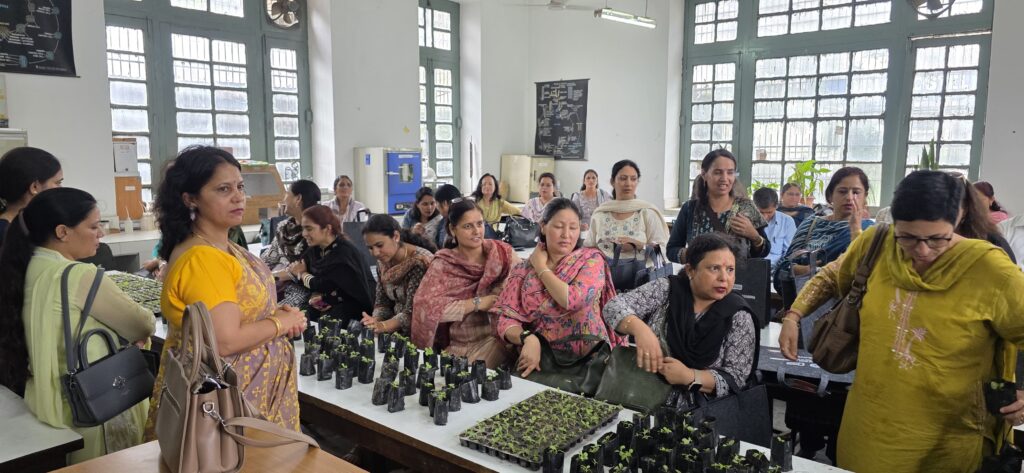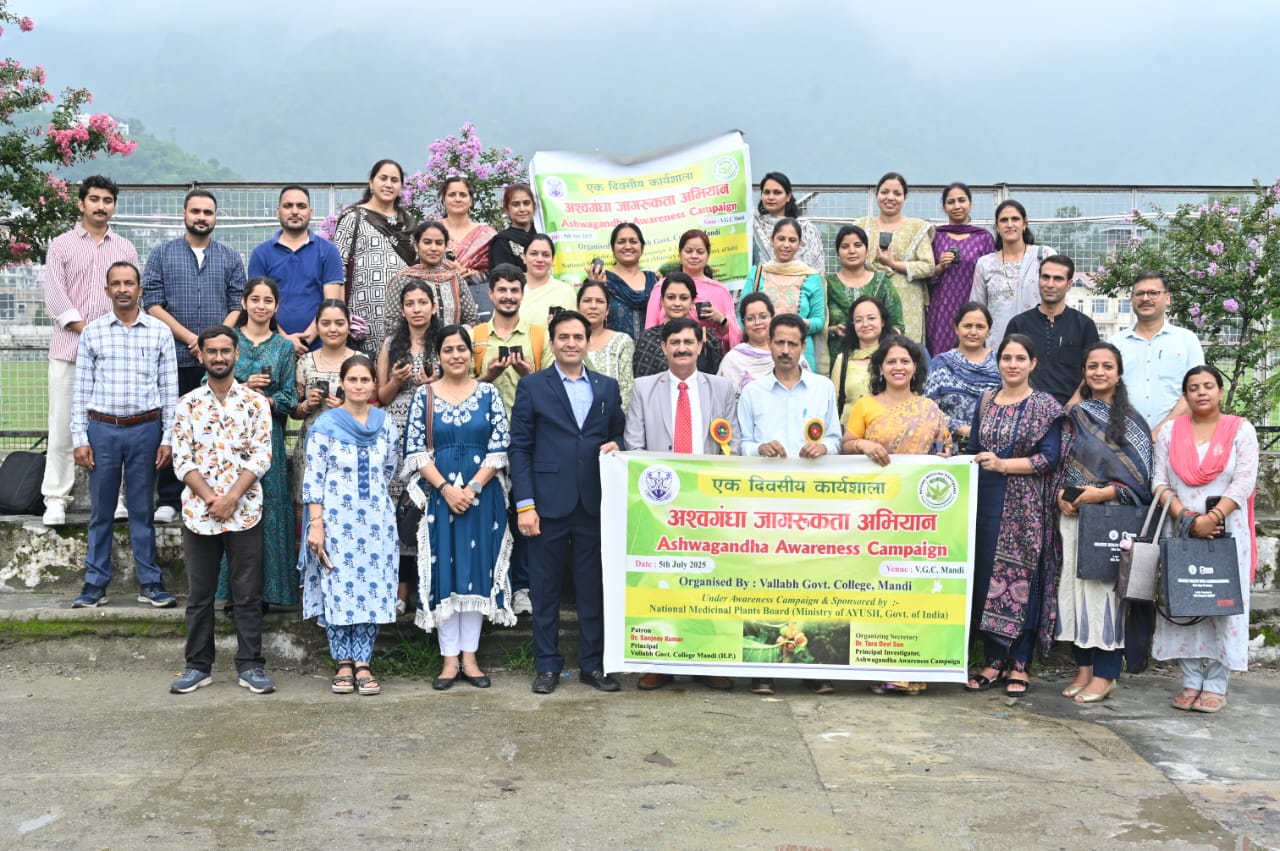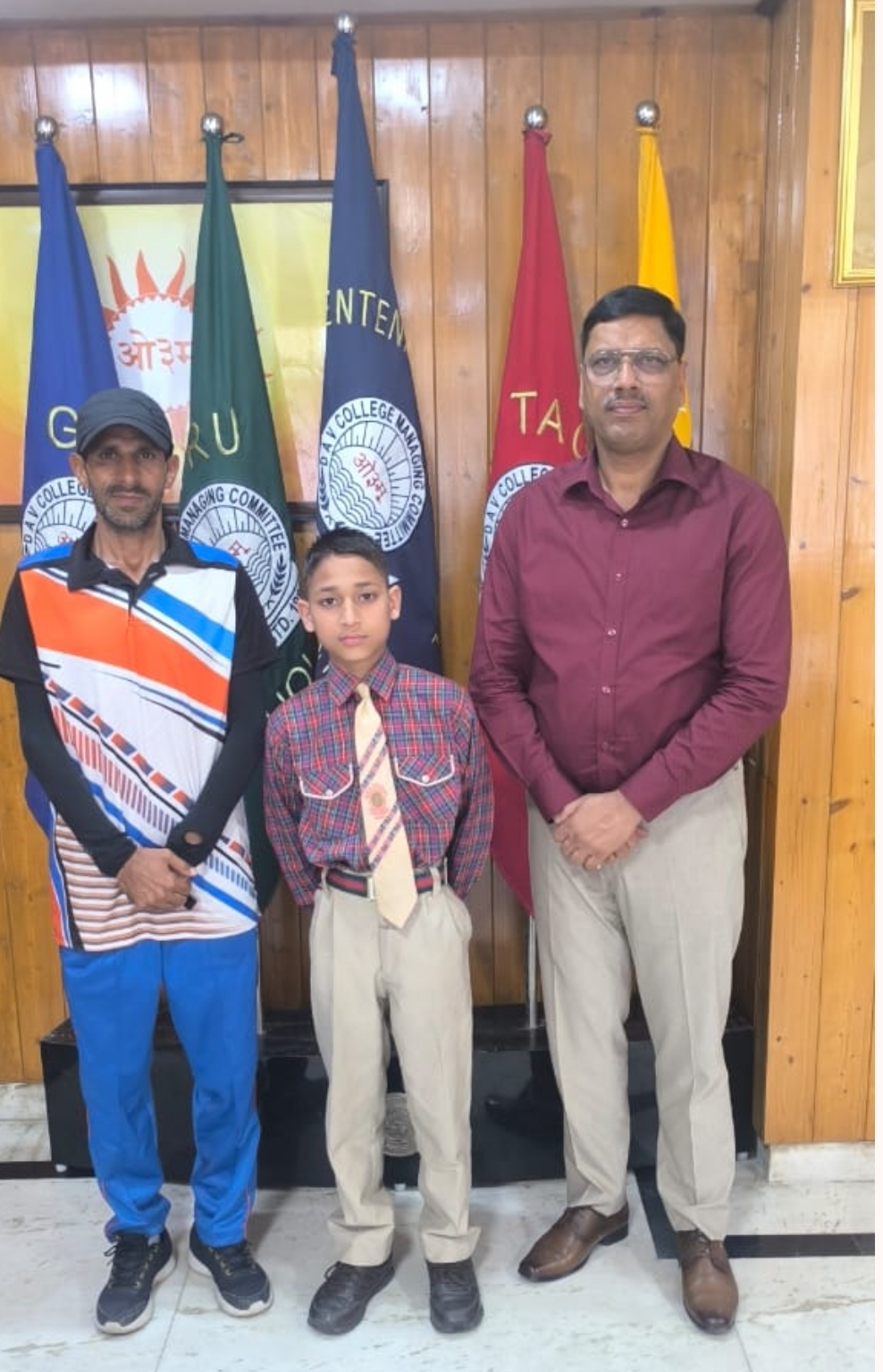Teachers to Champion Ashwagandha Awareness: Vallabh Government College Mandi Hosts National Medicinal Plants Board Workshop.
Shimla:
In a major step toward reviving and promoting traditional Indian health wisdom, Vallabh Government College (VGC), Mandi, hosted a one-day awareness workshop on Ashwagandha — widely known as the “King of Herbs” — under the National Awareness Campaign of the National Medicinal Plants Board (NMPB), Ministry of AYUSH, Government of India on Saturday.
Held on the college campus, the event witnessed active participation from over 100 attendees, including 60 teachers, 15 students, 10 farmers, and 15 staff members. These teachers, deputed by the Deputy Director of Elementary and Higher Education, came from various educational blocks of Mandi district, with a mission to become health ambassadors in their communities and institutions.
Chief Guest Highlights Ashwagandha’s Health & Economic Potential
The workshop was graced by Dr. Rajesh Kumar, District AYUSH Officer, Mandi, who served as the Chief Guest. In his keynote address, Dr. Kumar emphasized the multifaceted benefits of Ashwagandha — from boosting immunity and reducing stress to enhancing vitality and supporting overall wellness. He also underlined the importance of safe utilization, dosage guidelines, and how Ashwagandha cultivation could serve as a new source of rural income in Himachal Pradesh.
Knowledge Sharing and Implementation Strategies
The program began with a welcome address by Prof. Sanjeev Kumar, Principal of VGC Mandi, who applauded the collaborative efforts of educational and health institutions in fostering grassroots awareness of traditional health practices.

Dr. Tara Sen Thakur, Principal Investigator of the campaign, provided an insightful overview of the Ashwagandha Awareness Initiative. She explained the strategies for implementation, importance of community involvement, and shared value-added recipes made with Ashwagandha, showcasing the herb’s diverse culinary applications.
Prof. Sanjeet, Co-Investigator from the Central University of Himachal Pradesh, offered a compelling presentation on “Ashwagandha in Indian Traditional Knowledge Systems,” emphasizing its deep roots in Ayurveda and its timeless relevance.
From the cultivation perspective, Y.K. Sen of Kamaksha Agri & Flori Tech, Sundernagar, educated participants on soil suitability, agronomic practices, and market opportunities associated with Ashwagandha farming. His talk ignited interest among farmers and educators alike about its potential to support both health and livelihoods.
Sapling Distribution and Ashwagandha Snacks Enthrall Participants
A major highlight of the event was the distribution of over 500 Ashwagandha saplings to be planted in schools across Mandi district, signaling a tangible start to community-level cultivation efforts.
In a creative twist, Ashwagandha-based biscuits and snacks were also served during the workshop, delighting attendees and giving them a first-hand experience of the herb’s edible applications.
Supporting Faculty and Closing Remarks
Among the dignitaries and faculty supporting the workshop were Vice Principal Prof. Ravinder Kumar, Dr. Deepali Ashok, Dr. Sanjay Narang, Dr. Sanjay Kumar, and Kushal Verma, who contributed to discussions and ensured smooth execution of the event.
The workshop concluded with a heartfelt vote of thanks delivered by Dr. Pradeep Kumar, Associate Professor of Geography, who acknowledged the dedication of all stakeholders — from the Ministry of AYUSH to local farmers and schoolteachers — in making the workshop a meaningful and action-oriented initiative.
This workshop marks a significant milestone in linking traditional Ayurvedic knowledge with modern educational outreach, empowering teachers to become torchbearers of wellness in rural Himachal Pradesh through the power of Ashwagandha.


